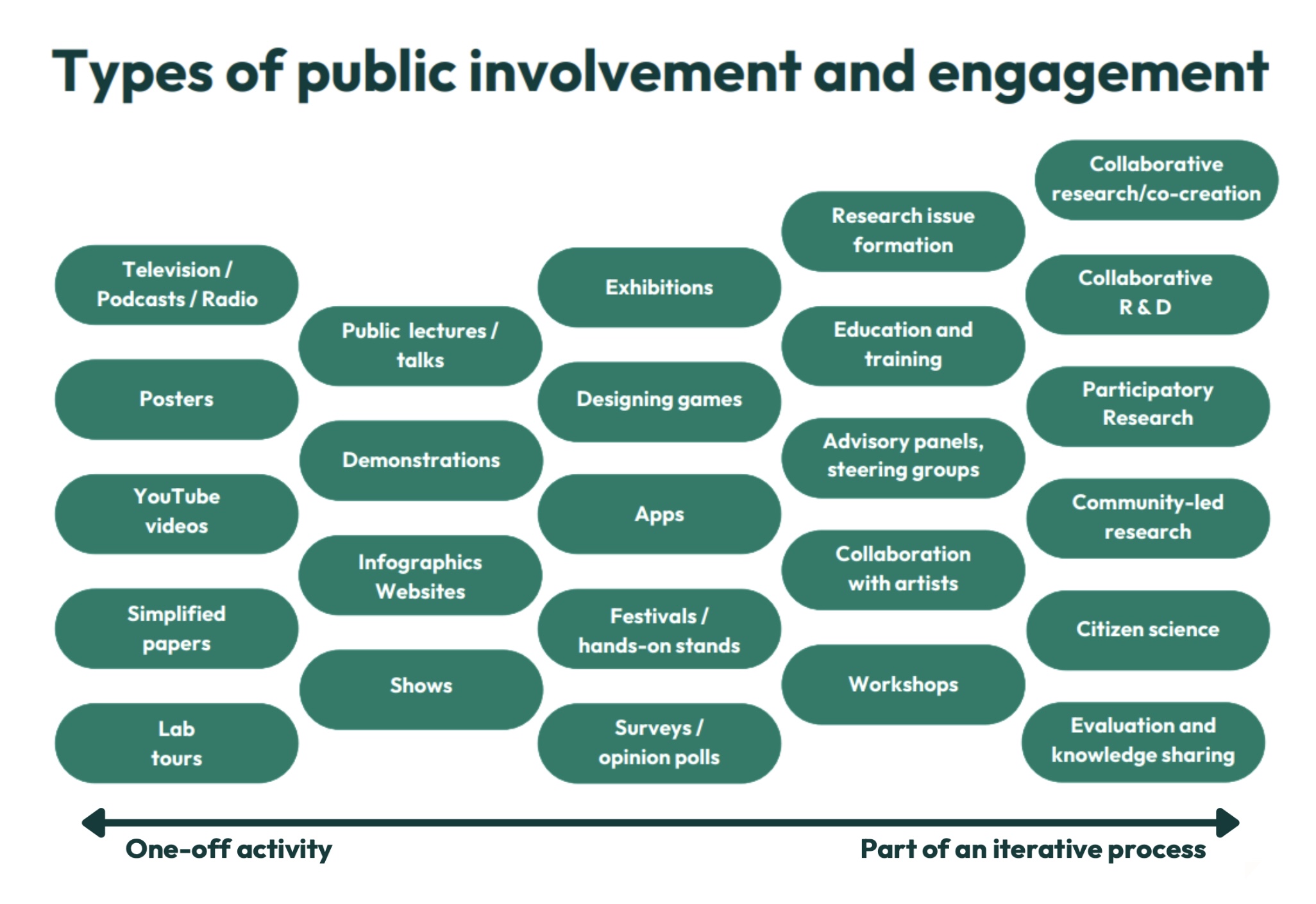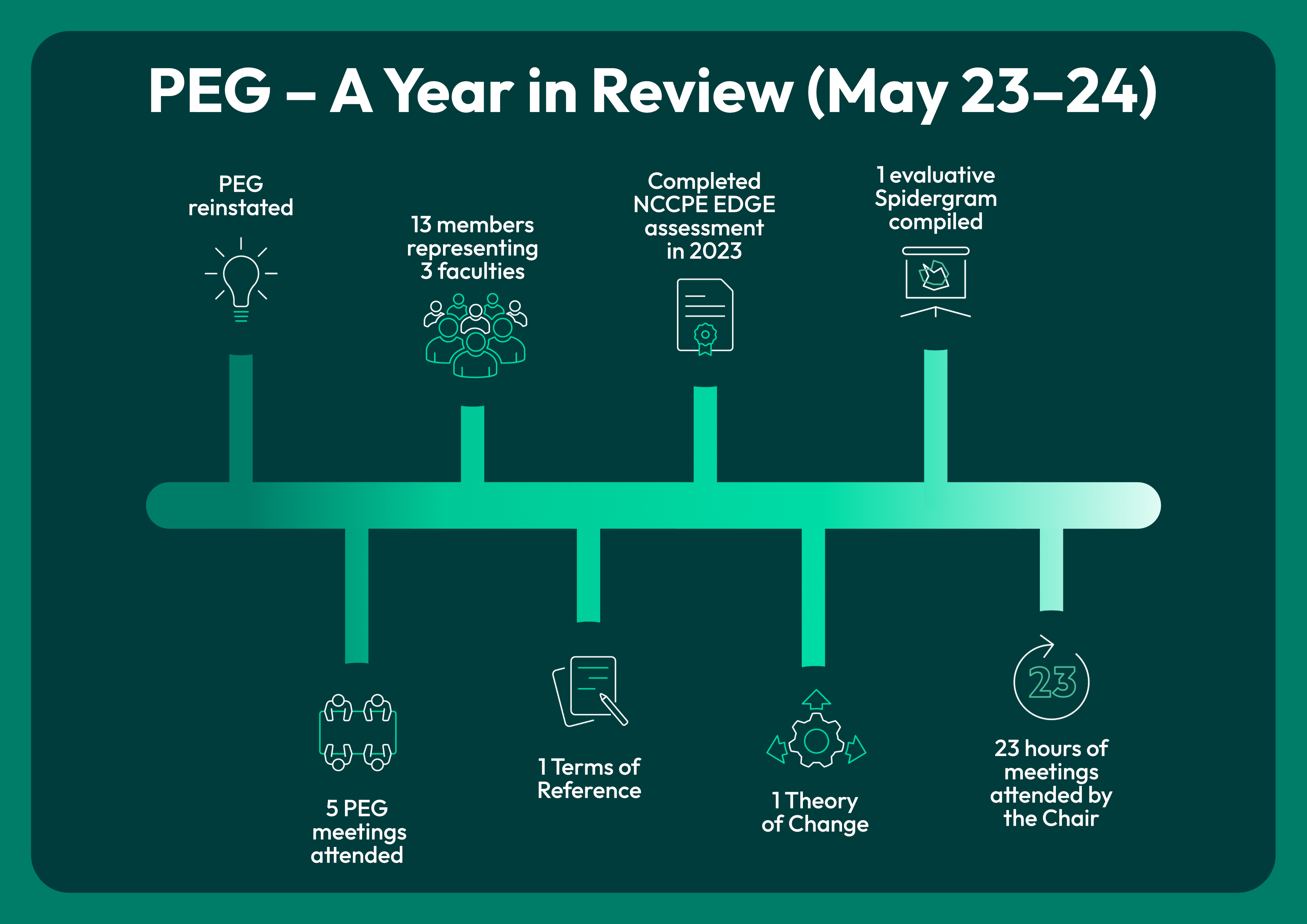About Engagement
Engaged research is a two-way process which recognises and values the expertise, skills and knowledge of non-academics. It encompasses the different ways researchers meaningfully interact with other partners throughout the research process, enabling the co-creation of research questions and shared delivery of research. Partners could include user communities; members of the public; public, private or voluntary sector organisations.
Researchers will engage with those who have the potential to benefit from research, from framing the research question through the co-creation of knowledge to activities to promote the sharing of findings, with consequent benefit for the research, the researchers and the research users.
The University of Exeter’s philosophy is to embed a culture of engaged research which supports researchers to build purposeful partnerships with a range of non-academic partners. You can find out more about engagement below as well as a host of useful information in our PER Resources Hub.
Pillars of Engagement
These pillars underpin the principles of successful public engagement and should be referred to throughout the lifecycle of engagement activities:
- Purpose – why are you engaging? Having a clear reason is critical to quality engagement.
- People – who are you engaging? Who needs to work with you to design and deliver the engagement?
- Process – what’s the best way to engage? Do you need more than one method of engagement?
- Evaluation – make sure you evaluate the whole project, including the researchers and delivery team.
"Public engagement describes the myriad of ways in which the activity and benefits of higher education and research can be shared with the public. Engagement is by definition a two-way process, involving interaction and listening, with the goal of generating mutual benefit."
NCCPE
(National Co-ordinating Centre for Public Engagement)
Types of Engagement
Activities we support include but are not limited to:
- Mutually beneficial collaboration between academics and the public around research.
- Nurturing existing partnerships with the public to ensure the quality and longevity of the partnerships.
- Piloting innovative models and methodologies for public engagement with research.
- Making research relevant and accessible to the public.
- Evidencing the effectiveness of public engagement activities and/or co-production.
Take a look below at examples of ways to engage that span across the engagement spectrum, from passive engagement to fully-emersed iterative processes.

"Public engagement includes any activities that seek to break down the barriers between research, innovation and society. This can include collaborative research, patient and public involvement (PPI), public dialogue, activity at festivals, museums and science centres, schools engagement, and much else."
UKRI
(United Kingdom Research and Innovation)
PEG (Public Engagement Strategic Advisory Group)
The Public Engagement Strategic Advisory Group provides strategic leadership around demonstrating the value of public engagement with research, engaging with a diverse set of publics, and developing a thriving engaged research culture.
It brings together relevant academic and professional service staff from across the university to provide strategic leadership for public engagement with research at the University of Exeter.
You can view PEG's Terms of Reference here, as well as a Year in Review 2023–24 detailing the group's achievements below.





